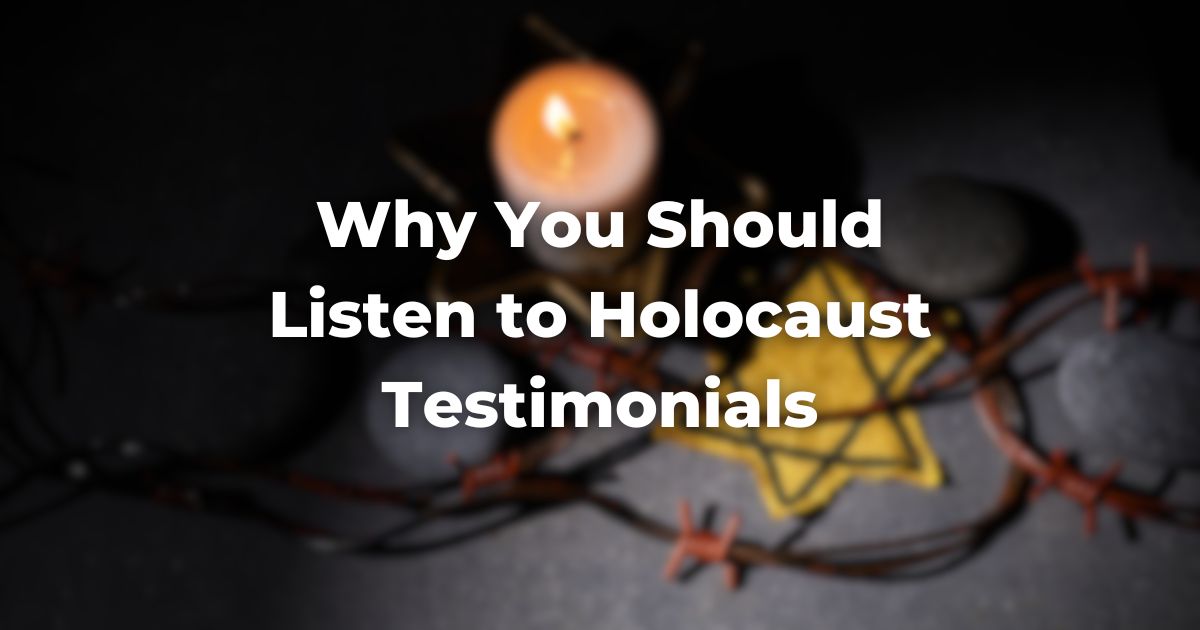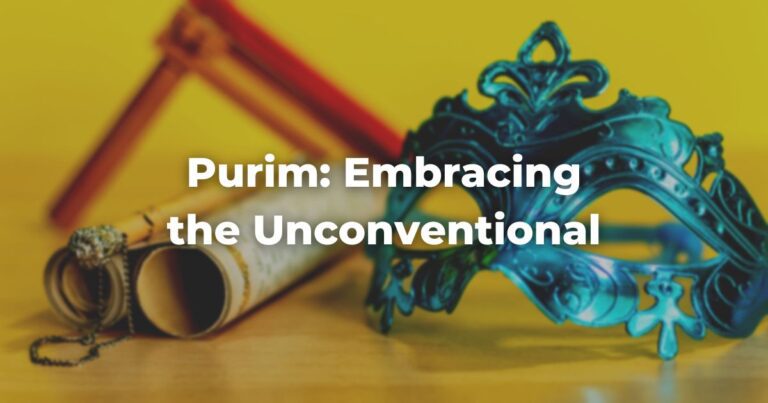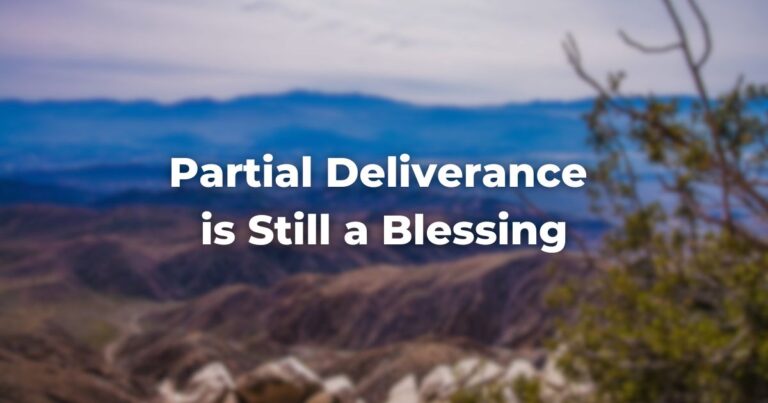As the population of survivors, people who experienced the Holocaust firsthand, declines, it is essential that we hear their stories. Listening to the stories directly from those who experienced the horrors gives us a unique insight into the pain, suffering, and lasting impact of the Shoah.
When we hear their stories, we honor their experiences and memories. It is incumbent on us to listen, learn, and engage with their stories so that we can prevent such horrors from happening again.
Holocaust denial is present in every age group, and 1 in 5 Americans, ages 18-29, see the narratives of the Holocaust, taught to them through textbooks, historical fiction, and documentaries, as a myth.
A survivor sharing their story with tears in their eyes can shake you to your core more than any story on a page ever can. Imagining the person before you, and not a character in a book, forced into these circumstances imparts a different understanding. The human brain cannot conceptualize a number as large as six million, but a single human’s story can be heard and shared.
The TalmudReferring to one of two collections, the Jerusalem and Babylonian Talmuds, edited in the 6th century, that contains hundreds of years of commentary, discussion, and exploration of the ideas in the Mishnah. One could describe it as Mishnah + Gemara = Talmud Read more teaches that ending one life is like ending an entire world, and saving one life saves an entire world (Sanhedrin 37a). When we engage with each person’s account, one by one, and hear their stories, we understand that each life is like a whole world.
We must keep their stories alive, hear their voices, and see their faces before their generation is no longer with us.
If you have the opportunity to hear from a Holocaust survivor in person, it is encouraged that you do so. Listen to them before they can no longer tell their story, and hold their story close.
While you may not have access to one of these people, this is the gift that exists in video archives around the world. Below are a few collections of survivor testimonials from Holocaust studies and memorial centers.
United States Holocaust Memorial Museum
Holocaust survivors’ experiences are told through their own words through oral histories, written testimony, and public programs. This archive is considered the largest and most diverse collection of Holocaust testimonials worldwide.
Yad Vashem
This archive includes approximately 200 full-length testimonials categorized by year, subject, place, and language. Some of these testimonial films feature survivors telling their stories in the location where the events transpired.
USC Shoah Foundation
This archive contains 54,399 audiovisual testimonies, mainly recorded between 1994 and 2001. Similar to some in the Yad Vashem collection, 159 of these testimonies end with walking interviews conducted on the sites of former concentration camps, ghettos, or family homes.
Kupferberg Holocaust Center
This archive, housed by the City University of New York, focuses specifically on survivors in the New York City area.
Many universities and other organizations house similar archives, which can be easily found through a simple Google search.
Author
-

Exploring Judaism is the digital home for Conservative/Masorti Judaism, embracing the beauty and complexity of Judaism, and our personal search for meaning, learning, and connecting. Our goal is to create content based on three core framing: Meaning-Making (Why?), Practical Living (How?), and Explainers (What?).
View all posts





